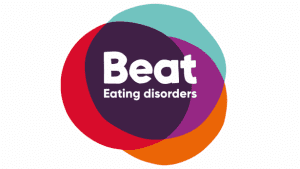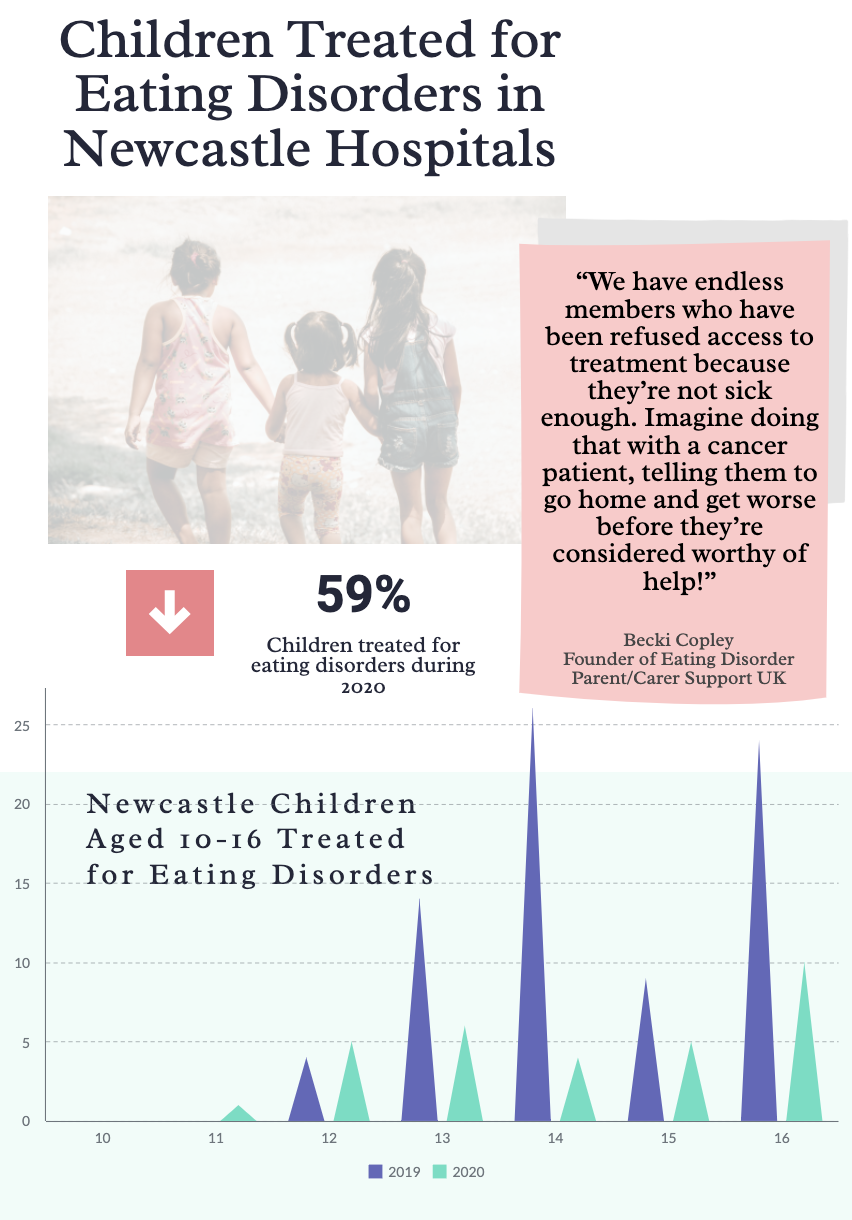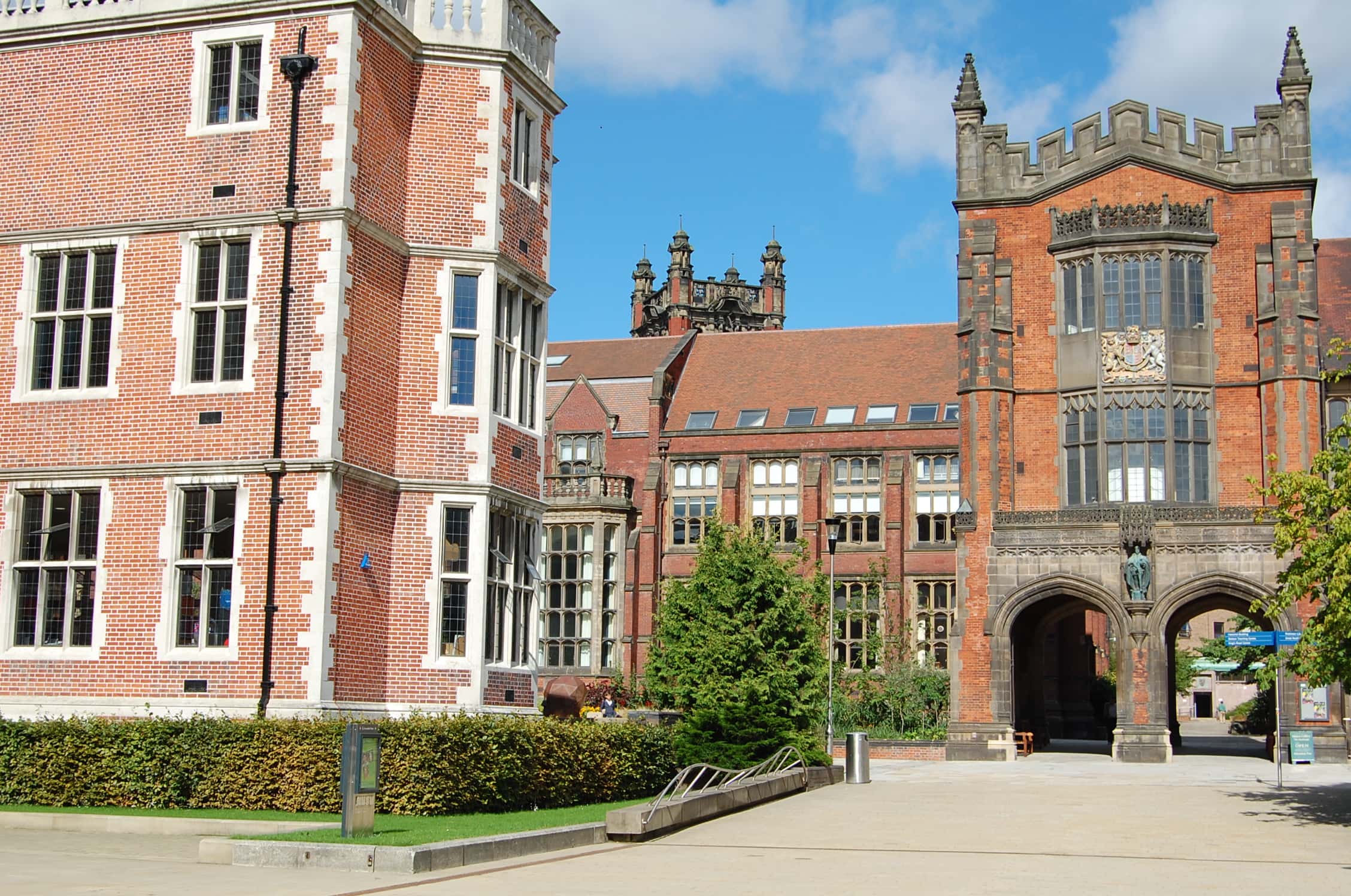The number of children treated for eating disorders in Newcastle dropped by 59 per cent during the coronavirus pandemic compared with 2019, according to data obtained by SR News.

A FREEDOM of Information (FOI) request to Newcastle Hospitals NHS Foundation Trust (NHFT) revealed that in 2020, just 31 children aged 10-16 years received treatment for an eating disorder: a dramatic decline from the 77 children treated the previous year.

Becki Copley, Newcastle mum and founder of Eating Disorder Support Parent/Carer UK (EDSUK), experienced the devastating effects of eating disorders first-hand when her daughter was diagnosed with anorexia, aged 13.
She said the reduction of treatment numbers was down to changes in the referral process and a lack of specialist care during the pandemic.
“More [children] are being referred to CAMHS (Children and Adolescent Mental Health Services) than EDICT (Eating Disorder Intensive Community Treatment Service) in Newcastle,” she said. “We have CAMHS units referring to our group even – madness!”
Mrs Copley is determined to get children access to specialist services and refuses to let the pandemic stop her. Alongside her online support work, she has created a petition to the government calling for an overhaul of eating disorder services, saying she “didn’t want anyone else to struggle as [she] had and feel alone”.
A government commissioned public inquiry on body image revealed that 58 per cent of children found the first lockdown made them feel worse about their appearance: 26 per cent of young people who were accessing mental health support prior to the pandemic were unable to access services, as they were withdrawn, or individuals were unable to access remote support.
Tom Quinn, director of external affairs for eating disorder charity Beat, told SR News: “Our helpline has seen a steady increase in demand during the coronavirus pandemic and hit an all-time record in March, with a 302 per cent increase in demand compared to February.”
Beat suggested that though it is difficult to draw a definitive conclusion from the figures, the drop could be due to effective early intervention measures by local services. They added that decreased capacity on eating disorder units because of the pandemic could also be a contributing factor to the drop in admissions.
Stephanie Radford, founder of Northern Aurora Counselling, which specialises in treating eating disorders, spoke of her concern on the figures uncovered by SR News and the impact of the pandemic: “Eating disorders are, by nature, secretive, and if people aren’t being seen either by health professionals or in schools, they can flourish in that space.”
NHFT did not respond to our request for comment.
If you or someone you know is struggling with an eating disorder, you are not alone. Visit Beat for support.



